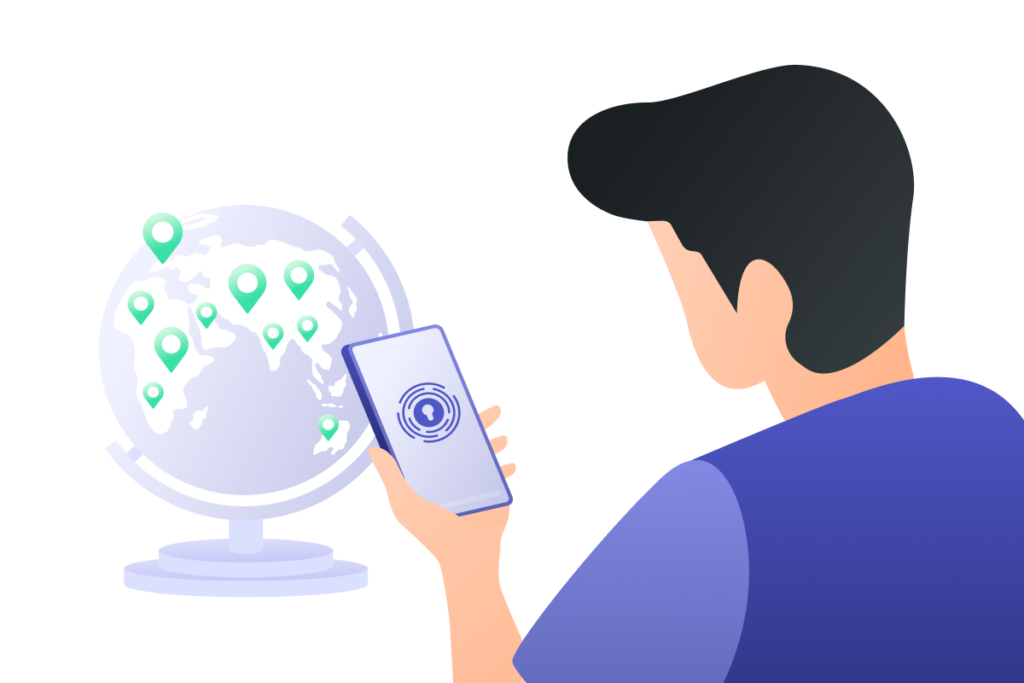Commercial 5G networks are going live and their adoption is predicted to radically transform our technological landscape and create dents in the foundations of privacy. Ericsson, the Swedish network and telecommunications provider, has estimated that global mobile data traffic will increase five times by the year 2024. Organizations from all corners of the world are now in a race to dominate and power up the networks that will run the 5th generation of wireless technology. EU member states have already launched procedures for assigning 5G frequency licenses along with respective financial conditions for these licenses.
What is 5G?
5G is the new generation of wireless networks that is estimated to bring an increase in the speed of up to 100 times faster than current standards. With 5G, users are able to download more megabytes per second with significantly less delay. More users can simultaneously connect in a single geographical area, which means that mobile data can work seamlessly in the most crowded places. More importantly, 5G will radically alter the state of current technology by powering large scale IoT (Internet of Things), AR (Augmented Reality), AI (Artificial Intelligence), Telesurgery, and many more areas where development and research were being halted due to the lack of wireless efficiency. 5G features ultra-low latency communication, which makes device connectivity on a large scale possible. This technological breakthrough is said to expedite the Fourth Industrial Revolution.

Privacy Concerns
With the worldwide 5G rollout, location privacy is at the forefront of concerns. A standard cell tower has an average location radius of 1.6 kilometers. This radius is currently the accuracy at which mobile service providers can pinpoint their customers’ locations. 5G signal generating instruments can be much smaller and provide a shorter range. However, 5G signals struggle to penetrate buildings. While this may sound positive at face value for privacy, this limitation will push providers to install mini 5G wireless instruments indoors and all over cities. Anyone with access to your network’s cell tower data will be able to track your movements in real-time.
From a marketing standpoint, personal data will be more granular, informative, and valuable to customer-facing businesses. Retailers will be able to track a customer’s movement, attention, and activities as they explore their store.
Verizon, a large telecommunication provider based in the U.S., recently ran surveillance tests with police departments while utilizing 5G technologies. The enhanced bandwidth allowed surveillance cameras to quickly transmit high-quality images wirelessly without degradation to the image quality. The low latency, provided by 5G networks, allowed for on-site processing of the surveillance images to identify people and objects twice as fast.
With the rollout of 5G networks, it is important to consider security. Critical infrastructures, such as electrical grids, medical devices, and autonomous vehicles, will be exposed to cyber-attacks. Strong security to protect personal data and protect against the ongoing threat of cyberwarfare will be required. In the past, cybersecurity researchers have found Authentication and Key Agreement (AKA) security protocols to be insufficient. This vulnerability could allow traceability and sophisticated tracking attacks on 5G devices.

SINTEF, a cybersecurity research firm based in Norway, released a report last fall revealing security flaws in 5G. The report shows that the network’s protocol weaknesses can be used in a variety of attacks. The research also revealed the vulnerability to an “IMSI-cracking attack” which allows a hacker to obtain a person’s “international mobile subscriber identity” number. This information can be used to redirect a person’s calls, messages, or connectivity to a rogue device.
IoT (Internet of Things) devices connected to the new 5G networks will multiply exponentially. Many of these devices will be automatically connected by design and by default without user intervention. This enables significant risks for consumers worldwide. Attackers will be able to easily exploit design flaws based on hardcoded credentials. This type of attack has already been seen with previous malware, such as Mirai malware. The power provided by 5G networks is opening the gateway to known and unknown security risks. As our world becomes more connected to our networks, such as with smart cameras, tracking equipment, and smart door locks, we are enabling outsiders the gateway to interfere with these tools. 5G networks can allow an outsider to control our connected home seamlessly and without our knowledge.

What steps can you take to protect yourself?
Always encrypt your data whenever you connect to the Internet. This advice sounds rudimentary but is it surprisingly ignored by the majority of global citizens. Secondly, turn off location services and GPS on mobile devices. We also recommend purchasing IoT devices that provide information on how the device works and instructions on how users can have more control over their own devices. The devices you choose should have interface elements and indicators that allow you to access your data and easily control its connectivity status.
The fight for privacy is not simple and requires continuous active participation. It is important to do your research and stay aware. Demand for your local Data Protection Authorities to issue guidelines and investigate data processing activities for all connected devices. It is also your duty to engage with your government representatives and encourage them to implement an outright ban on the sale of location data.
Most importantly, don’t be tempted to sacrifice your privacy and personal security for fast and easy convenience.
Download PrivadoVPN
Protect your privacy with a world-class VPN. Sign up for premium access to PrivadoVPN and get unlimited monthly data, access to 300+ servers from around the world, and up to 10 simultaneous connections. Get a top-rated VPN that can secure your privacy at home, at work, or on the go.
Sign up for PrivadoVPN today!




